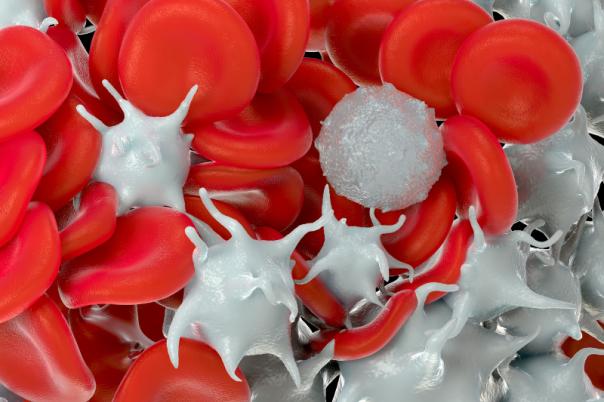Immunocore have developing a new platform for targeted cancer therapy which they call ImmTAC. These soluble bispecific molecules use a high-affinity T cell receptor (TCR) which targets HLA complexes on the surface of cancer cells. On the other end, their effector function is an anti-CD3 to activate T cells to kill tumour cells.
Immunocore believes that ImmTAC’s specificity and broad range of targets makes it a new frontier of oncology treatment. Although antibodies make great therapies, they are limited by the fact that their natural ligands are surface proteins which only make up about 10% of the cellular protein repertoire. So, the choice of target is fairly limited.
TCRs instead recognise peptide/HLA complexes on the surface of the cell, which have been produced by the degradation of other proteins inside the cell. Therefore, by binding to the peptide/HLA, Immunocore can target over 90% of the human proteome, expanding the therapeutic window.
However, TCRs do come with their own challenges. Because they are two chain membrane proteins, they can be difficult to manufacture solubly. Furthermore, TCRs have very low affinity for their targets, usually in the micromolar range with a half-life interaction of only a couple of seconds. Finally, TCRs themselves don’t have any function on their own, they kill by activating T cells. So, a soluble TCR bispecific would require an alternative effector function.
These three challenges led to three key inventions including: an artificial disulfide bond to keep the two chains together; a technology based on phage display to increase the affinity of the TCR by one million-fold; and an anti-CD3 scFv effector function which recruits and activates T cells to kill cancer cells.
Immunocore’s clinical candidate is called Tebentafusp which is an ImmTAC targeting gp100 in uveal melanoma. This candidate has so far demonstrated significant survival benefits in clinical trials, marking a breakthrough as the first approved TCR therapeutic for a solid tumor.
Beyond oncology, Immunocore is adapting the ImmTAX platform for autoimmune diseases, aiming to provide targeted therapies that reduce systemic immunosuppression. The ImmTAAI concept involves using TCRs to protect tissues from autoreactive T cells.
A specific program for type 1 diabetes is being developed, using a TCR targeting pre-pro insulin and an anti-PD1 agonist to reduce autoreactive T cell activity, demonstrating promising results in laboratory assays. Immunocore plans to submit a comprehensive preclinical package for regulatory approval, with the goal of initiating clinical trials for the autoimmune program early next year.






